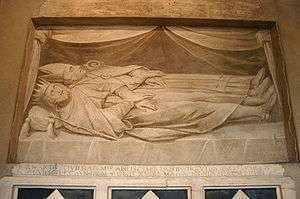818
Year 818 (DCCCXVIII) was a common year starting on Friday (link will display the full calendar) of the Julian calendar.
| Millennium: | 1st millennium |
|---|---|
| Centuries: | |
| Decades: | |
| Years: |
|
| 818 by topic |
|---|
| Leaders |
| Categories |
|
| Gregorian calendar | 818 DCCCXVIII |
| Ab urbe condita | 1571 |
| Armenian calendar | 267 ԹՎ ՄԿԷ |
| Assyrian calendar | 5568 |
| Balinese saka calendar | 739–740 |
| Bengali calendar | 225 |
| Berber calendar | 1768 |
| Buddhist calendar | 1362 |
| Burmese calendar | 180 |
| Byzantine calendar | 6326–6327 |
| Chinese calendar | 丁酉年 (Fire Rooster) 3514 or 3454 — to — 戊戌年 (Earth Dog) 3515 or 3455 |
| Coptic calendar | 534–535 |
| Discordian calendar | 1984 |
| Ethiopian calendar | 810–811 |
| Hebrew calendar | 4578–4579 |
| Hindu calendars | |
| - Vikram Samvat | 874–875 |
| - Shaka Samvat | 739–740 |
| - Kali Yuga | 3918–3919 |
| Holocene calendar | 10818 |
| Iranian calendar | 196–197 |
| Islamic calendar | 202–203 |
| Japanese calendar | Kōnin 9 (弘仁9年) |
| Javanese calendar | 714–715 |
| Julian calendar | 818 DCCCXVIII |
| Korean calendar | 3151 |
| Minguo calendar | 1094 before ROC 民前1094年 |
| Nanakshahi calendar | −650 |
| Seleucid era | 1129/1130 AG |
| Thai solar calendar | 1360–1361 |
| Tibetan calendar | 阴火鸡年 (female Fire-Rooster) 944 or 563 or −209 — to — 阳土狗年 (male Earth-Dog) 945 or 564 or −208 |

Fresco of king Bernard of Italy (797–818)
Events
By place
Byzantine Empire
Europe
- April 17 – King Bernard of Italy, illegitimate son of Pepin of Italy, is tried and condemned to death by Emperor Louis I. The Kingdom of Italy is reabsorbed into the Frankish Empire.
- The Slavs on the Timok River break their alliance with the Bulgars. Duke Ljudevit of Pannonian Croatia sends emissaries to Louis I, to assert his independence from the Franks.[2]
- Al-Andalus: A grave rebellion breaks out in the suburbs of Cordoba, against the Umayyad Caliphate. Andalucian Arab refugees arrive in Fez (modern Morocco).[3]
Britain
- The Anglo-Saxons, led by King Coenwulf of Mercia, raid Dyfed in Wales (approximate date).
Asia
- Beginning of the Lemro period: The Sambawa and Pyinsa Kingdoms are founded in present-day Myanmar.
By topic
Births
- Abu Dawud, Muslim hadith compiler (or 817)
- Al-Fath ibn Khaqan, Muslim governor (or 817)
- Ariwara no Yukihira, Japanese governor (d. 893)
- Pepin, count of Vermandois (approximate date)
- Sahl al-Tustari, Persian scholar (approximate date)
Deaths
- April 17 – Bernard of Italy, king of the Lombards (b. 797)
- October 3 – Ermengarde, queen of the Franks
- Al-Fadl ibn Sahl, Persian vizier
- Ali al-Ridha, 8th Shia Imam (b. 766)
- Cernach mac Congalaig, king of Brega (Ireland)
- Clement, Irish scholar and saint
- Felix, bishop of Urgell (Spain)
- García I Jiménez, duke of Gascony
- Hildebold, archbishop of Cologne
- Michael the Confessor, bishop of Synnada
- Morman, chieftain and king of Brittany
- Muiredach mac Brain, king of Leinster (Ireland)
- Theophanes the Confessor, Byzantine monk (or 817)
- Quan Deyu, chancellor of the Tang Dynasty (b. 759)
- Yuan Zi, general of the Tang Dynasty (b. 739)
gollark: The last backup was made in 2012.
gollark: I like not dying of easily preventable diseases, and having a house, and internet connectivity, and reliable food and water.
gollark: no.
gollark: You could think "hmm yes, I require X" and you'd get adverts for X.
gollark: I mean, you could think secret things and your Google BrainWidget™ transmits them to Google for stuff.
References
- Dr. Kathryn Tsai. A Timeline of Eastern Church History. Divine Ascent Press, Point Reyes Station, CA, 2004, p. 153.
- Fine, John V. A., Jr. (1991) [1983]. The Early Medieval Balkans: A Critical Survey from the Sixth to the Late Twelfth Century. Ann Arbor, Michigan: University of Michigan Press. p. 107. ISBN 0-472-08149-7.
- Picard, Christophe (2000). Le Portugal musulman (VIIIe-XIIIe siècle. L'Occident d'al-Andalus sous domination islamique. Paris: Maisonneuve & Larose. p. 40. ISBN 2-7068-1398-9.
This article is issued from Wikipedia. The text is licensed under Creative Commons - Attribution - Sharealike. Additional terms may apply for the media files.